#václav neckár
Text
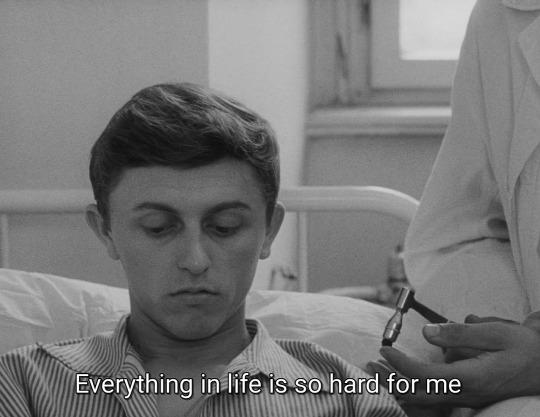
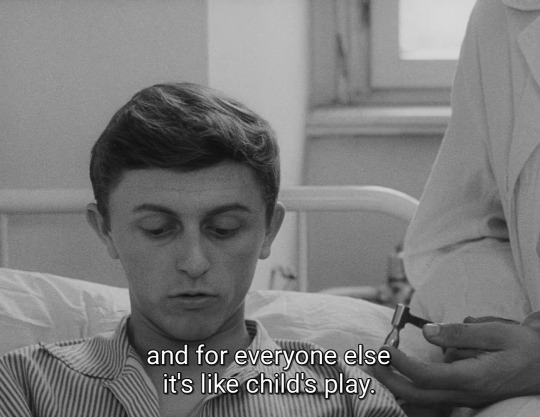
closely watched trains (1966) dir. jiří menzel
#closely watched trains#jiří menzel#václav neckár#jitka bendová#film aesthetic#film stills#film#vintage films#film quotes#60s film#60s aesthetic#czech film#czech cinema#czech new wave#eastern european cinema#60s cinema#film quotations
64 notes
·
View notes
Photo
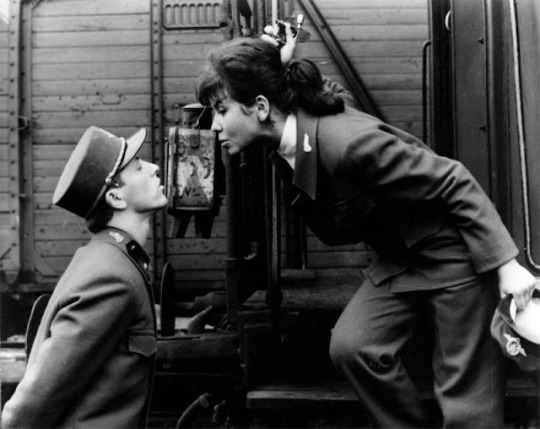
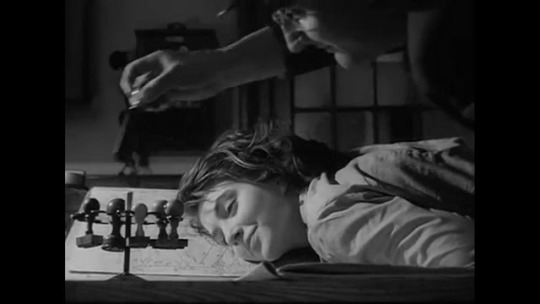
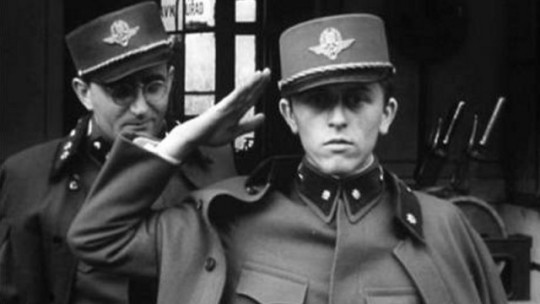
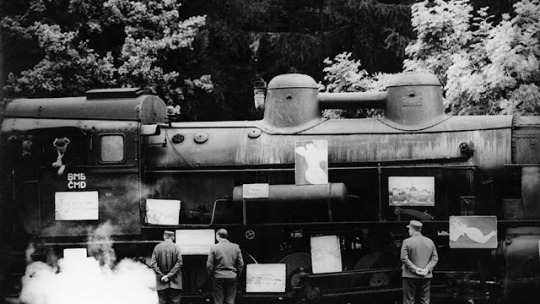
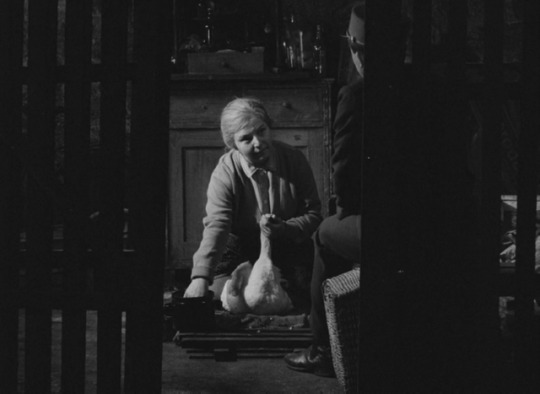

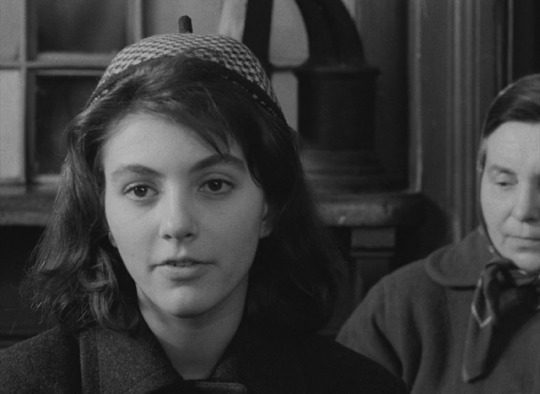
Closely Watched Trains (Jirí Menzel, 1966)
Cast: Václav Neckár, Josef Somr, Vlastimil Brodský, Ferdinand Kruta, Alois Vachek, Vladimír Valenta, Jitka Bendová, Jitka Zelenohorská, Nada Urbánková. Screenplay: Bohumil Hrabal, Jirí Menzel, based on a novel by Bohumil Hrabal. Cinematography: Jaromír Sofr. Art direction: Oldrich Bosák. Film editing: Jirina Lukesová. Music: Jirí Sust.
It's a little hard to come up with the right adjective for Closely Watched Trains. "Bittersweet" doesn't quite work, nor does "tragicomic." It's one of those essentially comic films that keep you off balance by maintaining a matter-of-fact attitude toward life and death. We've all seen coming-of-age comedies about a young man's attempt to lose his virginity, but they rarely interrupt that process by a suicide attempt or end with a heroic self-sacrifice after the protagonist reaches his goal. The secret of Jirí Menzel's success at bringing off both deviations from the norm lies in the texture of his film: It's so full of little unexpected moments from characters who never quite behave in the ways we think they're going to that we come to accept their off-beat actions and attitudes. Take, for example, the subplot involving Hubicka's lovemaking with the telegraphist, during which he applies to her bottom the bureaucratic stamps on the table where they consummate the affair. She's perfectly fine with it, and even when her mother discovers the inked flesh and hauls her before the magistrate, she maintains a blissful smile during the interrogation. We've come to think of Hubicka as something of a womanizing creep, but her blithe acceptance of her role in their relationship upends (so to speak) what may have been our original view of it. She's using him at least as much as he's using her.
2 notes
·
View notes
Text
Eastern Bloc Songs
First published in The Wire 418, December 2018. The curator, Wayne Burrows, responded on Twitter shortly after this was published that the exhibition catalogue included much of the contextual information missing in the show. Having perused the accompanying book, which is mostly reproductions of song lyrics, I can say that's absolutely not the case.
Eastern Bloc Songs
Centrala Space, Birmingham, UK
This archival show, curated by Nottingham-based writer Wayne Burrows, of audiovisual recordings, records and magazine facsimiles from the Eastern Bloc pop industry feels at once panoramic and curiously narrow. Burrows, who collected the material over a number of years, covers a huge time span, 1963 to 1988, but only three countries, with most of the material coming from the former Czechoslovakia around 1968. With very little contextual information and haphazard labelling, it forms a vast and sometimes bewildering info-dump, that would tell a very different narrative from that of the Anglophone canon of post-war Eastern European culture, if you could ever extract it from the accumulation of period detail.
A set of rather schematic assumptions still governs the reception of Eastern Bloc music. Dissident and samizdat culture is always somehow aesthetically higher than the products of state-supervised record labels like Czechoslovakia's Supraphon and Poland's Pronit, its creativity spurred by the official limits placed on what Cold Warriors used euphemistically to call “civil society”. The picture that emerges faced with at least some of that product is altogether stranger. A wall of photos of Polish and Czechoslovak stars – Marta Kubišová, Helena Vondráčková, Václav Neckář, Czeław Nieman – shows them in outfits that wouldn't be out of place in a 1964 Top Of The Pops episode. Three vitrines of sleeves show the evolution of records across the period: the early 60s models have the clean but stuffy contemporary design of EMI and Polydor. One of four screens shows Kubišová's 1969 film Proudy odnesou lasku, directed by Jan Nĕmec, whose 1966 satire A Report On The Party And Its Guests was banned in Czechoslovakia. Kubišová, who resembles Rita Tushingham if she'd taken a career in chanson, rides in a jeep through a bomb-site, surrounded by children in army jackets and later slithers around sets decorated with the kind of occult imagery later to turn up in Jaromil Jireš's Valerie And Her Week Of Wonders (1970). On another screen, her contemporaries Hana and Petr Ulrychovi mount a controlled and ever-escalating prog assault with choirs and horn sections between guitar spray; Neckár and Golden Kids stretch The Electric Prunes' garage psych until it almost snaps. With the exception of a brief appearance from Plastic People Of The Universe, hardly anyone here is known in the West, underground or mainstream.
If the structure of feeling of the various artistic New Waves of Eastern Europe – Andrzej Wajda, Miloš Forman, Miklós Jancsó and Věra Chytilová would be the golden names – formed a labyrinth of rage, irony, naivete, plain speaking and soiled glamour, it's no surprise that the pop of that period is racked by the same rich contradictions. But it's hard to tell where all of this fits. Is it just a corrective to the historical emphasis on Communist states' high-minded sponsorship of culture, as in Poland's PRES? Or to the coffee-table fetishisation of underground bands, when 'underground' required a very literal distance from official culture and its attendant police spies? How did the publics of the Eastern Bloc, caught between a socialist culture industry and a dissidence they may have no lived connection to, really feel about this music? The sometimes astounding sounds and visuals here give no answers, only the languid stares of semi-hippie cover girls, looking off to an unguessed future.
0 notes
Text
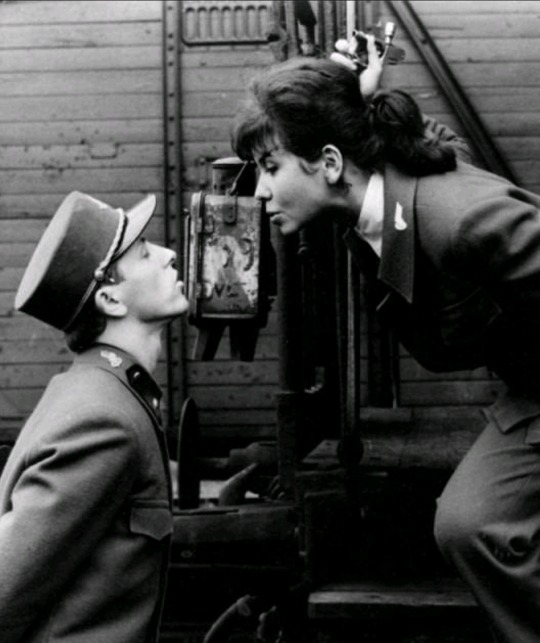
Václav Neckár and Jitka Scoffin in Ostre Sledované Vlaky (1966)
1 note
·
View note
Photo
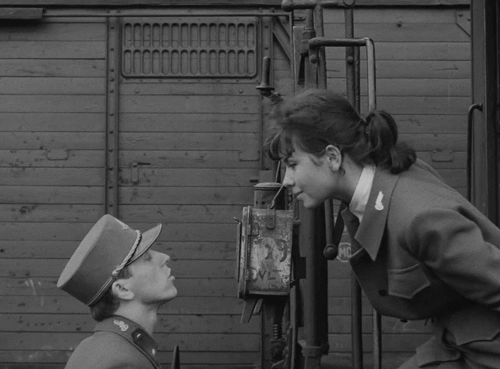
Closely Watched Trains (Jiří Menzel, 1966)
#Closely Watched Trains#Jiří Menzel#Jirí Menzel#jiri menzel#trains#gif#kiss#black and white#closely observed trains#Ostře sledované vlaky#ostre sledovane vlaky#Václav Neckár#vaclav neckar#Jitka Bendová#jitka bendova#1966
570 notes
·
View notes
Photo
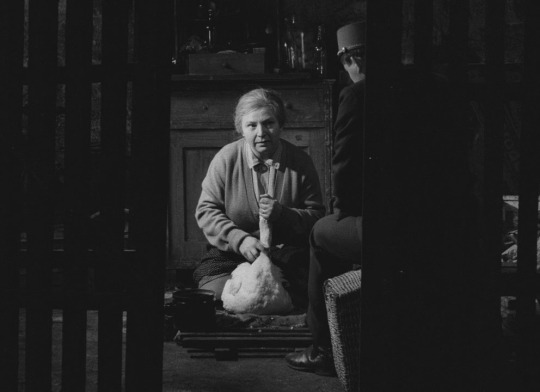
#closely watched trains#Prednostová#Libuse Havelková#václav neckár#goose#jirí menzel#jaromír sofr#r.i.p. jirí menzel
0 notes
Photo
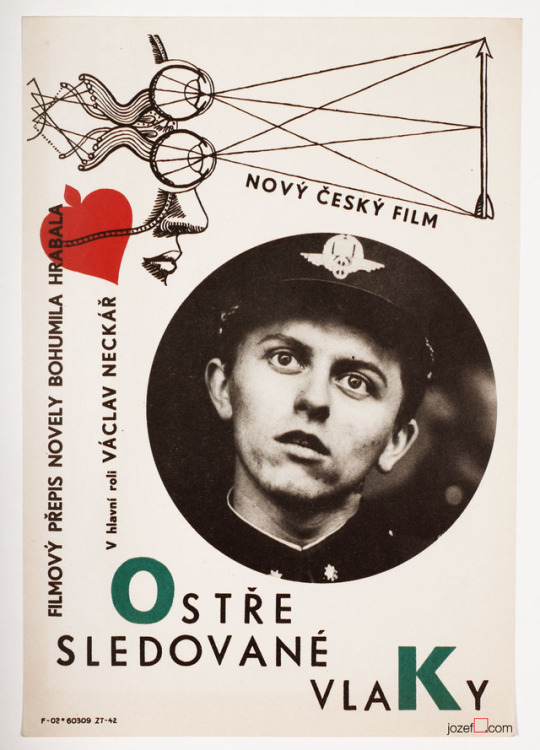
Closely Watched Trains - Trailer
https://www.youtube.com/watch?v=Igc0Jp62kEg
#closely watched trains#trailer#jirí menzel#Václav Neckár#Josef Somr#vlastimil brodský#bohumil hrabal
2 notes
·
View notes
Photo
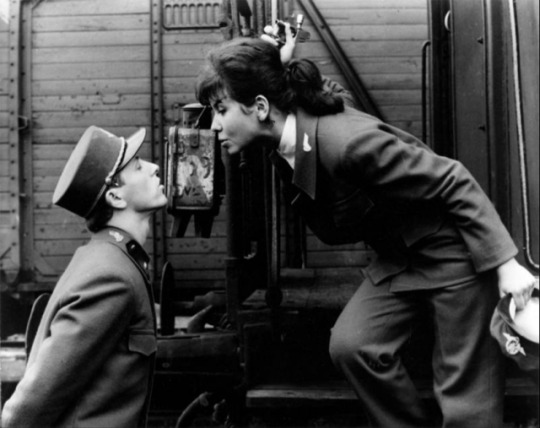
Václav Neckár (Milos) and Jitka Bendová (Masa), Screenshot from Jiří Menzel’s “Ostře sledované vlaky” (Closely Watched Trains), Czechoslavakia 1966
Milos: My name is Milos Hrma. People often laughed at my name. But ours was a famous family. Great Grandfather Lukas was a drummer and fought on the Charles Bridge in Prague. The students threw cobblestones at the soldiers and hit Grand Grandfather so hard that he was pensioned off on one gulden a day. He didn't do anything after that except buying a bottle of rum and a pack of tobacco every day.
This is such a sweet, ultimately sad film. It’s one of the hallmark films of the brilliant Czech New Wave. If you haven’t seen it, you should.
42 notes
·
View notes
Photo
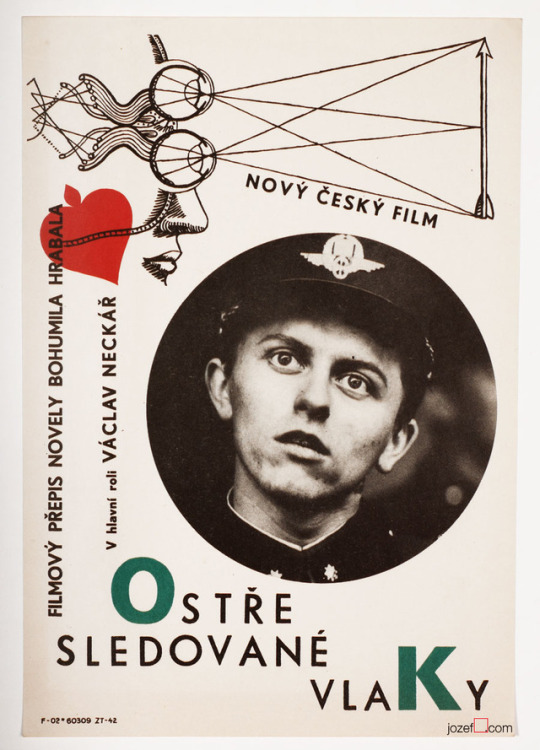
# 80 - Closely Watched Trains (Jirí Menzel, 1966)
#closely watched trains#jirí menzel#václav neckár#josef somr#vlastimil brodský#film#films in 2018#movie#cadwalladery
1 note
·
View note
Photo
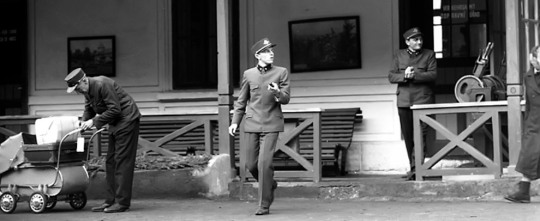
A scene from Closely Watched Trains (1966), starring Václav Neckár (center).
1 note
·
View note
Photo
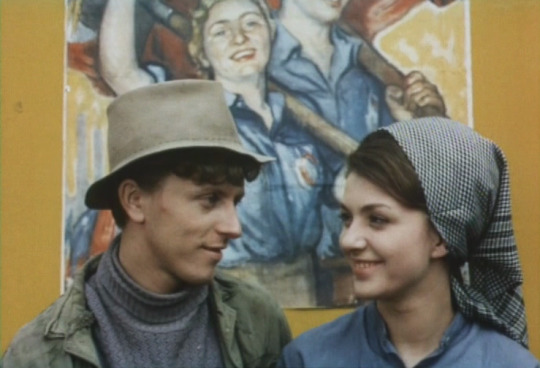
Larks on a string (1969) | dir. Jiří Menzel | Film diary : 06.12.2015
7 notes
·
View notes
Photo

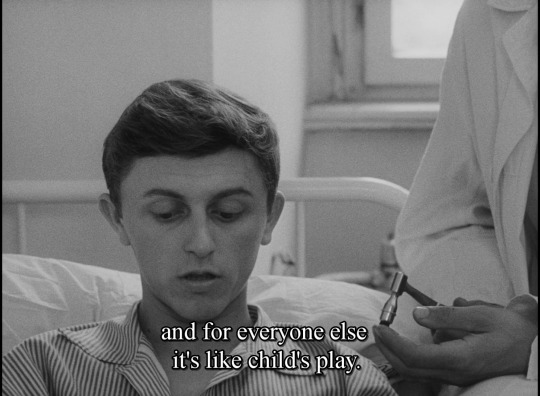
Closely Watched Trains (Jiří Menzel, 1966)
#Closely Watched Trains#Jiří Menzel#jiri menzel#Jirí Menzel#quote#1966#closely observed trains#black and white#life#sadness#ostre sledovane vlaky#Ostře sledované vlaky#Václav Neckár#vaclav neckar#Václav Neckář
404 notes
·
View notes
Photo
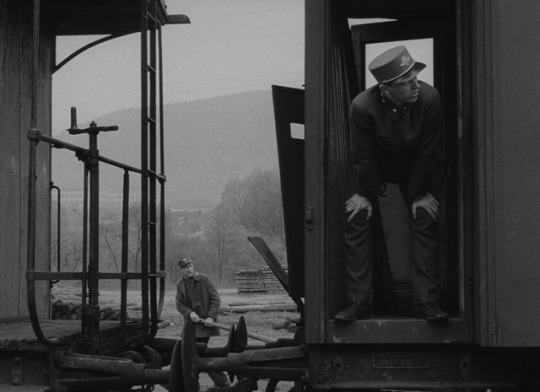
0 notes
Photo
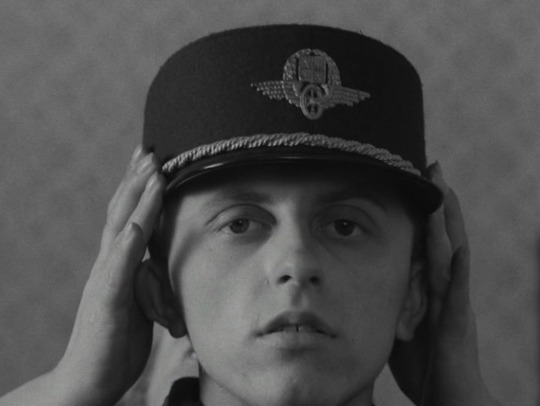
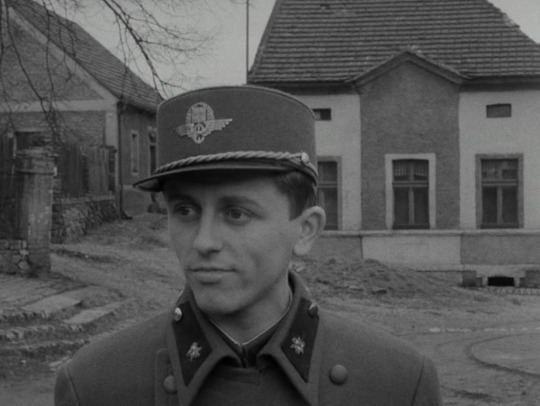
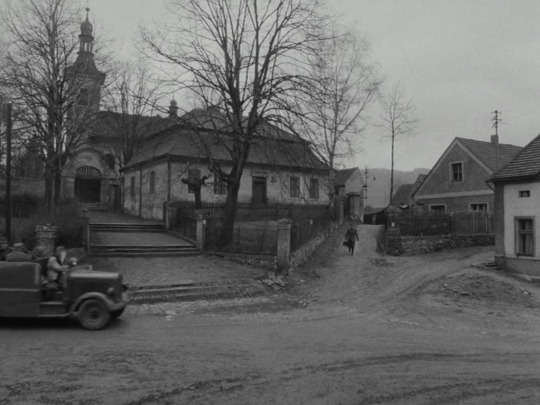
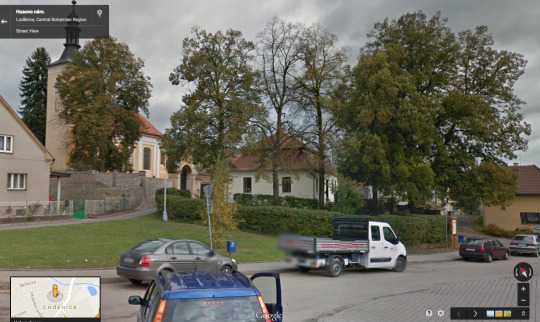
Ostře sledované vlaky / Closely Watched Trains
Jirí Menzel. 1966
Milos’ village
Husovo nám. 38, 267 12 Loděnice, Czech Republic
See in map
See in imdb
#jirí menzel#closely watched trains#václav neckár#church#village#ostře sledované vlaky#loděnice#czech republic#movie#cinema#film#location#google maps#street view#1966#czechoslovak new wave
27 notes
·
View notes
Photo
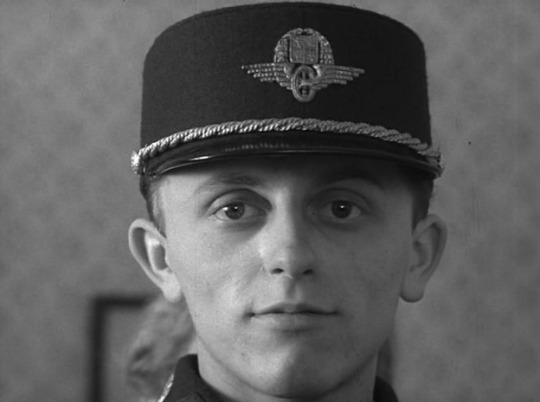
Ostre sledované vlaky (Closely Watched Trains)
52 notes
·
View notes
Video
youtube
Marta Kubišová, Helena Vondráčková and Václav Neckář singing "Časy se mění", a Czech cover version of Bob Dylan´s "Times They Are Changing".
#Czech music#Marta Kubisová#Helena Vondrácková#Václav Neckár#Bob Dylan#cover version#Golden Kids#Times They Are a Changing#Czech#Czech Republic
2 notes
·
View notes